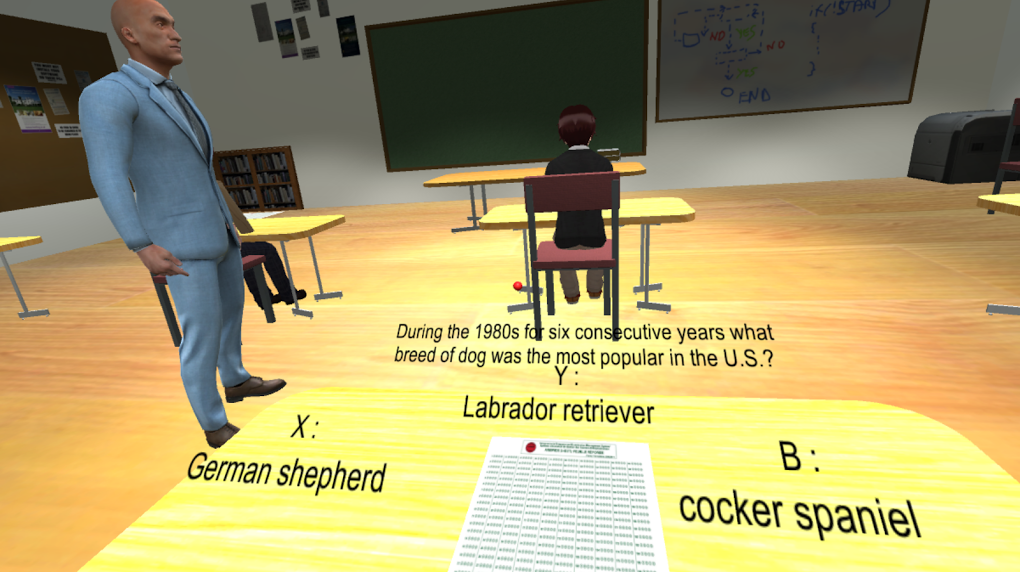 hide forever |
hide once
hide forever |
hide once
Perception Meets Examination: Studying Deceptive Behaviors in VR
Carla Aravena1 |
Mark Vo1 |
Tao Gao2 |
Takaaki Shiratori1 |
Lap-Fai Yu1 |
1University of Massachusetts Boston |
2General Electric |
 |
Abstract
Students cheating on an exam in an academic setting creates an environment where one person (the student) must reason about the perception of another (the teacher). In exploring the student's mindset, trends concerning how humans make decisions based on their understanding of another human's intentions and knowledge can be uncovered. In this work, we study human cheating behavior through simulated examinations in virtual reality, showing that the teacher's animacy and orientation plays a large part in the student's reasoning of the teacher's awareness. By utilizing a virtual classroom setting and accurately tracking a user's behavior (through head tracking, eye movement, etc.), we have also demonstrated how a novel virtual reality approach can be used for such experiments involving human behavioral observations, which can be further explored in other cognitive science research experiments.
Index Terms: deceptive behavior; behavior modeling; virtual reality; game experimentation; human vision; Theory of Mind
Perception Meets Examination: Studying Deceptive Behaviors in VR
Carla Aravena,
Mark Vo,
Tao Gao,
Takaaki Shiratori,
Lap-Fai Yu
Proceedings of the 39th Annual Meeting of the Cognitive Science Society (CogSci 2017)
Paper, Video
@article{vise,
title =
{Perception meets Examination},
author = {Aravena, Carla and Vo, Mark and Gao, Tao and Shiratori, Takaaki and Yu, Lap-Fai},
booktitle = {Proceedings of 39th Annual Meeting of the Cognitive Science Society},
year = {2017}
}
This research is supported by the Oracle Undergraduate Research Fellowship, the McNair Program, the UMass Boston StartUp Grant P20150000029280 and the Joseph P. Healey Research Grant Program provided by the Office of the Vice Provost for Research and Strategic Initiatives & Dean of Graduate Studies of UMass Boston. This research is supported by the National Science Foundation under award number 1565978. We also acknowledge NVIDIA Corporation for graphics card donation.